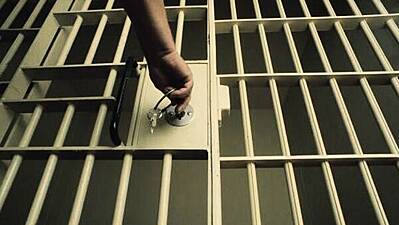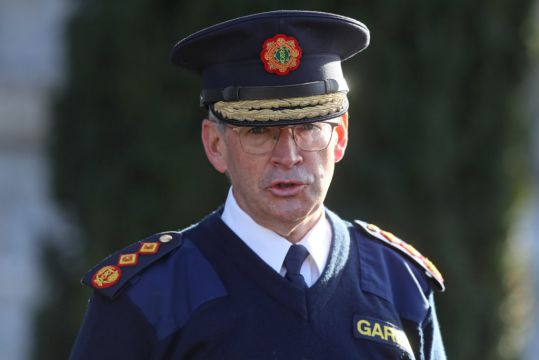The organised crime situation would be “far, far worse” if drugs were legalised, Garda Commissioner Drew Harris has said.
Advocates for decriminalisation argue it would damage criminal gangs by targeting their main source of revenue, and say the ongoing, decades-long “war on drugs” has been a failure.
But Mr Harris said organised crime would not disappear overnight and raised concerns over public health and societal problems.
He said current Garda anti-drugs operations have “great effect” and denied it was time for a different approach.
Mr Harris said: “I don’t believe that we would just see the absence of organised crime groups, should we legalise all of these drugs tomorrow.
“There would be huge public health issues, but there will be ongoing crime issues as well, because it would mean the regulation of this industry then.
Commissioner Drew Harris with A/Commissioner John O'Driscoll & D/Chief Superintendent Angela Willis at the commencement of Operation Tara - a new operation targeting street-level drug dealing & protecting communities from the “scourge of illegal drugs” https://t.co/JIh2Yaon3S pic.twitter.com/xYRszZuYT5
— Garda Info (@gardainfo) July 2, 2021
“I don’t think anyone has successfully thought through how all of this could be, in effect, legalised.”
He added: “I think the situation would be far, far worse, if we just allowed, in effect, a level playing field or open season on this.”
Mr Harris was speaking at the launch of Operation Tara, which An Garda Síochána describes as “an enhanced national anti-drugs strategy”.
Garda figures show that in 2020 they seized in excess of €24 million worth of drugs.
This included 137.8 kilos of cocaine with an estimated street value of €9.5 million, 368 kilos of cannabis worth an estimated €7.3 million, 41.4 kilos of diamorphine valued at €5.8 million, as well as 32,000 amphetamines worth about €1.1 million and €750,000 worth of benzodiazepine tablets.
The commissioner said Gardai have been successful in tackling the multimillion euro drug trade.
“For our part, what we do see are organised crime groups, this is their product of choice at this moment in time,” he said.
“It’s doubtless there’s money in it, there’s lots of money to be made by them in this criminal endeavour.
“We do our utmost to detect and bring individuals to justice and to, in effect, degrade this trade.
“But I would point out to the many successes that we’ve had in terms of criminal justice interventions, but also then the interventions that the Criminal Assets Bureau has made as well.
“We’ve had massive interventions through 2020 in terms of seizures of both cash, drugs and guns, and that has then been backed up by Criminal Assets Bureau investigation as well.
“So I don’t believe that our enforcement efforts are to no effect. I think they are to great effect.”
The commissioner also warned of “unintended consequences” in other areas that could arise from legalisation.
He said: “This is a huge public policy issue and it is a health issue as well, drugs are undoubtedly a health issue. So it’s just not a policing issue but is a huge public policy question.
“If we change the equation on this, let’s be sure just exactly then what are the societal problems, further societal problems, that will open up and how we’re going to deal with those.
“There has been experience with the head shops, the specific health issues that that opened up, never mind the policing issues.
“We just need to be careful around what are the consequences or the unintended consequences of following any of these areas of public policy.”
'Short-sighted'
The commissioner’s comments were described as “short-sighted and insular”, by independent senator Lynn Ruane, a long time advocate of decriminalisation, who has tabled legislation on the issue.
She told the PA news agency: “I am disappointed to hear Harris’s comments today on legalisation of drugs.
“Ruling out the ending of prohibition is short-sighted and insular, in terms of health but also in terms of policing, moreover it makes no economic sense.
“Prohibition supports the black market and ensures thousands of drug users to be imprisoned under the Drug Act for possession. This is illogical.
“The drugs market is a successful one and isn’t long about correcting itself after drug seizures.

“What exactly are we celebrating and achieving by speaking to successes of CAB?
“I would urge decision-makers to be ambitious and to pay careful attention to the global research in this area, especially from the London School of Economics.
“The LSE expert group on the economics of drug policy argue that it is time to ‘end the war on drugs and massively redirect resources towards effective evidence-based policies underpinned by rigorous economic analysis’.”







